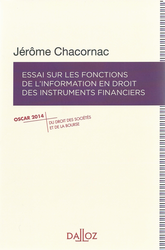July 15, 2016
Breaking news

In Senegal, the Autorité de régulation des télécommunications et des postes (ARTP ; English translation: Telecommunications and Posts Regulatory Authority) has, just like all regulators, inherent powers to impose sanctions. In general, the important thing is not only to exercise this sanctioning power but to exercise it in a way that reinforces the authority of the Regulator. In this perspective, the new Sonatel sanction decision is important.
As a sanctions always carry a heavier weight when people are made aware of it, the Director General of the Artp issued a press release, that has been flagged as particularly important, and held a press conference (in French) on a particularly serious sanction imposed following what the Regulator considers as the non-fulfilment of obligations stemming from formal notices (which, by the way, the telecom operator challenges on the merits).
On 21 November 2014 indeed, the Sonatel was given a formal notice from the Artp to respect consumer rights. As the code of telecommunications provides since its modification in 2014, operators shall "prendre les mesures appropriées de dimensionnement de leurs réseaux de nature à garantir à leurs clients un accès ininterrompu à leur service client commercial ou technique en respectant un taux d’efficacité minimal" (translation: "take appropriate measures to size their networks in a way that provides their consumers with an uninterrupted access to their customer service (sales service and technical support) which would respect a minimum efficiency rate") set by the Regulator itself- as to, namely, ensure that the right of consumers to be informed is satisfied (as regards billing mechanisms) and that their calls to consumer services remain free of charge. As the Regulator estimated that the Sonatel was not complying with such regulations, it conducted a formal investigation and notified a statement of objections to the operator, before sending on 28 January 2015 a second formal notice for the same reasons.
On 14 July 2016, the Regulator imposed a sanction on Sonatel since the it still estimated that the operator's behavior still was not leading to a compliant situation as regards the consumer right to be informed. The sanction, as stated in the Sonatel decision, is 13 billion 959 million FCfa (c. €20m), i.e., 15% of Sonatel's 2015 turnover. The sanction decision also provides that if the operator does not enforce it, an additional penalty of 10m FCfa (c. €15,000) per day will be charged.
The operator, however, challenges this sanction insofar as it estimates that its behavior is not to be blamed. To support its claim, Sonatel avails itself from the fact that upon reception of the first formal notice, it undertook a 'progressive compliance' with the requirements process as regards its network, then let the Regulator know about it, etc. It is henceforth to lodge an appeal.
The issue at stake, therefore, is to know whether the obligations on operators are obligations regarding the means used (that is to say, means obligations), or, conversely, if they are obligations to produce results (performance obligations). If they are means obligations, then the operator is right. However, considering the efficiency and effectivity principes that are closely linked with the teleological nature of Regulation, it is more likely that such obligations are performance obligations.
For instance, in France, the Commission Informatiques et Libertés (French Data Protection Authority- CNIL) considered on 1 March 2016!footnote-42 that the obligations on operators to have accurate and complete data are performance obligations and not mere means obligations.
Thus, there is probably more to follow with this Sonatel decision. The day the press release was issued, the operator stated it intended to lodge a hierarchical appeal before the Minister.
The next day, the Director General of the Artp stated in the press (in French) that under the Senegal law, the appeal could only be lodged before a jurisdiction, or before... the Regulatory Authority itself (request for reconsideration - in French : "recours gracieux").
This situation is thus a great reminder that new illustrations of the interplays between Regulation and Politics can always be found.
June 24, 2016
Breaking news

The Autorité des Marchés Financiers (AMF- French Prudential Supervision Authority) set up a Scientific Advisory Board under the supervision of its president Gérard Rameix, who is also president of the AMF.
The Scientific Advisory Board chose ‘Financial education in the digital era’ as the theme of its annual conference, which was held on 20 June 2016 in partnership with Paris School of Economics.
The conference was opened by François Villeroy de Galhau, Governor of the Banque de France (France’s central bank). He stated that financial literacy “shall help everyone make informed decisions”. In this regard, financial literacy is a “factor for economic efficiency and social fairness”, which justifies involvement from public authorities- including, namely, the Banque de France. In partnership with both the Autorité de Contrôle Prudentiel et de Résolution (ACPR- French Prudential Supervision Authority) and the AMF, the Banque de France ought to be a “caring educator, but an attentive regulator”, as it is “imperative that financial literacy and Regulation should be taken forward jointly, as to allow for new technologies to develop, which would be understood by all and for the benefit of all”.
Three roundtables followed. The first roundtable aimed at assessing financial literacy trends and their impact on the financial behaviour of consumers and investors in Europe. The second session focused on the opportunities opened up by new technologies (upon which Fintechs, e.g., crowdfunding platforms, data aggregators and automated financial advice services are thriving) as regards financial behaviours. Lastly, the third panel discussion, which involved several French (AMF, Institut National de la Consommation- INC, French National Institute for Consumer Affairs) and European (European Commission) Regulators, draw conclusions from the first two roundtables and discussed on the issues that an increasingly digitalised financial education raises for Regulatory authorities.
Since this conference raises many crucial questions for Regulation, it is important to recall what has been said in the panel discussion on the role of Regulator with regards to financial education (I.) before sharing some thoughts on this matter of particular interest (II.).
June 12, 2014
Thesaurus : Doctrine

Complete reference : Chacornac, J., Essai sur les fonctions de l'information en droit des instruments financiers, préf. de F. Drummond, Dalloz, 2014, 651 p.
Updated: Sept. 25, 2012 (Initial publication: Dec. 7, 2011)
Sectorial Analysis

Translated Summaries
In The Journal of Regulation the summaries’ translation are done by the Editors and not by the authors
ENGLISH
The Conseil d’Etat (French Council of State) handed down a ruling (n°339154) on October 19, 2011 in the French Data Network, Apple, and iTunes case. In this ruling, it refused to annul the decree giving the "Haute Autorité pour la diffusion des œuvres et la protection des droits sur Internet" (HADOPI — France’s Internet Piracy Regulator) the power to issue injunctions to force the accessibility of essential information on the Internet in order to guarantee interoperability, using either penalties or fines.
FRENCH
Le Conseil d’Etat a rendu un arrêt (n ° 339154) le 19 Octobre 2011 French Data Network, Apple et iTunes. Dans cet arrêt, il a refusé d’annuler le décret donnant à la Haute Autorité pour la diffusion des Œuvres et la protection des Droits sur Internet (HADOPI) le pouvoir d’émettre des injonctions pour forcer l’accessibilité des ’informations essentielles sur Internet afin de garantir l’interopérabilité, en utilisant des injonctions ou des amendes.
ITALIAN
Il “Conseil d’Etat” (il Consiglio di Stato francese) ha pronunciato una decisione (n° 339154) il 19 ottobre 2011 nel caso della rete di dati francese, Apple ed iTunes. In questa decisione, il Consiglio di stato ha rifiutato di annullare il decreto che conferisce alla “Haute Autorité pour la diffusion des œuvres et la protection des droits sur Internet” (HADOPI – l’autorità francese di regolazione contro la pirateria informatica) il potere di emettere delle sanzioni per assicurare l’accessibilità di informazioni essenziali su internet per garantire l’interoperabilità, usando così delle multe o delle ammende.
..................
Other translations forthcoming.
Updated: Sept. 25, 2012 (Initial publication: Sept. 19, 2011)
Sectorial Analysis

Main information
An advertisement broadcast in Burkina Faso for an insecticide did not reveal its health risks. The national media regulator published a decision on September 6, 2011 ordering that it be taken off the air and “requested” that the media refrain from broadcasting advertisements dangerous for human health and dignity.
Updated: Sept. 19, 2012 (Initial publication: Jan. 5, 2012)
Sectorial Analysis

Translated Summaries
In The Journal of Regulation the summaries’ translation are done by the Editors and not by the authors
ENGLISH
On December 20, 2011, the Autorité de Régulation des Communications électroniques et de la Poste (ARCEP — French postal and telecommunications regulator) fined La Poste, France’s universal postal service provider, one million Euros for not having provided an easily-available and affordable priority mail service for the shipment of low-value objects weighing less than two kilograms. This failure was in disregard of the regulator’s injunction, French legislation, and European directives.
FRENCH
Par une décision du 20 décembre 2011, l’Autorité de Régulation des Communications Electroniques et de la Poste (ARCEP), condamne à une amende d’un million d’Euros l’opérateur en charge du service universel, La Poste, car celle-ci n’a pas offert d’une façon accessible et abordable, sur un modèle proche de la « lettre », l’envoi d’objet de faible valeur de moins de deux kilos. En cela, l’opérateur a méconnu la mise en demeure du régulateur, la loi française et les directives communautaires.
SPANISH
El 20 de diciembre del 2011, la Autorité de Régulation des Communications électroniques et de la Poste (ARCEP – el Regulador francés de servicios postales y telecomunicaciones) multaron a La Poste, el proveedor universal de servicios postales en Francia, un millón de Euros por no haber proveído un acceso fácil y asequible a un servicio postal prioritario por el envío de objetos de poco valor pesando menos de dos kilogramos. Este fallo fue un acto de indiferencia del mandamiento judicial del regulador, de la legislación francesa y de las directivas europeas.
ITALIAN
Il 20 dicembre 2011 l’“Autorité de Régulation des Communications électroniques et de la Poste (ARCEP – l’autorità di regolazione francese in materia di servizi postali e telecomunicazione) ha fatto una multa a “Le Poste”, fornitore francese del servizio universale di posta, per un importo di un milione di euro per non aver fornito un servizio di posta celere accessibile e affidabile per la consegna di oggetti di poco valore e di un peso inferiore ai due chili. La Poste ha quindi commesso tale infrazione violando la diffida dell’autorità di regolazione, la legislazione francese e le direttive europee.
ARABIC
منذ قرار20 ديسمبر 2011 السُّلطة التنظيمية للاتصالات الإلكترونية و البريد( عادل فرنسي للاتصالات و البريد) ، حكمت علا المشغل المسؤول عن الخدمة العالمي ، البريد*(نِظام بريدي فِرنسِي)، بِدفع غرامة قدرُها مِليون يورو. هذه لم توفِّر سُهولة تُماثِل "الرِّسالة" لإرسال أشياء ضعيفة القيمة ذُو وزن أقل من اثنان كيلوغرام العامل تجاهل إنذار المُنظّم، القانُون الفرنسي و التوجيهات المُجتمعِية.
*La Poste : نِظام بريدي فرنسي
..................
Other translations forthcoming.
Updated: Sept. 11, 2012 (Initial publication: Sept. 7, 2012)
Breaking news

Updated: June 18, 2012 (Initial publication: June 9, 2012)
Breaking news

Updated: June 11, 2012 (Initial publication: June 4, 2012)
Breaking news

Updated: June 4, 2012 (Initial publication: June 4, 2012)
Contributions

Updated: May 29, 2012 (Initial publication: May 18, 2012)
Breaking news

Updated: May 9, 2012 (Initial publication: April 17, 2012)
Breaking news

April 24, 2012
Thesaurus : 03. French Council of State
2012, 24 April, Pelras et Questrebert
Updated: Jan. 13, 2012 (Initial publication: Jan. 11, 2012)
Contributions

Updated: Jan. 7, 2012 (Initial publication: Jan. 6, 2012)
Contributions

Updated: Dec. 21, 2011 (Initial publication: Dec. 7, 2011)
Contributions

Updated: Dec. 19, 2011 (Initial publication: Sept. 8, 2011)
Sectorial Analysis

Translated Summaries
ENGLISH
In 2010, the Autorité française de régulation des jeux en ligne (ARJEL — French Online gambling regulatory authority) decided that operators should have required all players to open an account even before they had been approved by the ARJEL to provide online gambling services, that all players should have been required to accept the general conditions of sale before their first bet, and that operators should have saved this information in a real-time archival format.
Account - Appeal - Appeal right - Data - Food - General power - Incoherence - Independence - Information - Legal mandate - Licence - Money laundering - Procedure - Real-time storage -Registration - Regulator - Sanction commission - Surveillance *
* In The Journal of Regulation, these keywords are done by the Editor and not by the Author.
FRENCH
En 2010, l’autorité française de régulation des jeux en ligne (ARJEL) estime qu’un opérateur aurait du exigé de tous les joueurs qu’ils ouvrent un compte avant son propre agrément par le régulateur, et que les joueurs acceptent les conditions générales de vente avant leur première mise, ces informations devant être insérées par l’opérateur sur le support d’archivage en temps réel. Ainsi, l’antériorité est acquise, cette certitude évitant toute manipulant et l’opérateur pouvant ainsi surveiller, comme le prévoit la loi, les joueurs, notamment au titre de la lutte contre la fraude et le blanchiment d’argent.
* In The Journal of Regulation, these keywords are done by the Editor and not by the Author.
Informe temático (el Juego): La Comisión Disciplinaria del ARJEL decidió que no era competente para sancionar a un operador aunque el Presidente del ARJEL las haya pedido. El Presidente del ARJEL ha apelado la decisión
En 2010, la Autorité française de régulation des jeux en ligne (ARJEL – el Regulador francés del juego en la red) decidió que todos los operadores deben requerir que todos los jugadores abran una cuenta aun antes de que hayan sido aprobados por ARJEL para proveer servicios de juego en la red, que todos los jugadores deben haber aceptado las condiciones generales antes de su primera apuesta, y que los operadores debieran haber guardado esta información en formatos actualizados.
.....................
Other translations forthcoming.
Updated: Dec. 13, 2011 (Initial publication: Nov. 24, 2011)
Contributions

Updated: Dec. 12, 2011 (Initial publication: Nov. 24, 2011)
Sectorial Analysis

Translated Summaries
In The Journal of Regulation the summaries’ translation are done by the Editors and not by the authors
ENGLISH
Several German representatives for regional data protection demanded that Facebook complies with EU and German law. Two major complaints concern Facebook’s facial recognition software and its "Like"-button.
FRENCH
Plusieurs représentants de l’Allemagne pour la protection des données régionales ont exigé que Facebook respecte les droits allemand et de l’Union Européenne. Les deux principaux reproches concernent le logiciel de reconnaissance faciale de Facebook et de son "Like" button.
SPANISH
Varios representantes alemanes de la protección de data regional demandaron que Facebook cumpla con la leyes europeas y alemanas. Dos quejas principales conciernen el software de reconocimiento facial de Facebook y su tecla “Like.”
ITALIAN
Diversi rappresentanti tedeschi per la protezione di dati regionali hanno richiesto a Facebook di conformarsi con la legislazione tedesca ed europea. I due reclami principali riguradano il sistema di riconocimento del viso di Facebook e la sua funzione “Mi piace”.
......................
Other translations forthcoming.
Updated: Dec. 8, 2011 (Initial publication: Sept. 20, 2011)
Sectorial Analysis

Translated Summaries
ENGLISH
A Chinese company issued shares on American exchanges, and was subsequently the subject of a Securities and Exchange Commission (SEC) investigation. The company’s auditor concomitantly revealed frauds it had discovered during its review of the company’s accounts. The SEC sued the auditor on May 27, 2011 in order to force it to communicate the documents it held. The auditor refused, arguing that Chinese criminal law prohibited the revelation of such documents. The SEC filed a motion in Federal Court to compel the auditor to comply with its request on September 6, 2011.
FRENCH
Une société chinoise lève des fonds aux Etats-Unis, puis fait l’objet d’une enquête de la part du régulateur financier nord-américain. Parallèlement, l’auditeur de la société dénonce des fraudes qu’il a découvertes par l’examen des comptes. La SEC assigne l’auditeur le 27 mai 2011 pour obtenir communication des documents qu’il détient. L’auditeur refuse, arguant de l’interdiction par le droit pénal chinois qui prohibe. La SEC saisit le 6 septembre 2011 le juge fédéral pour que celui-ci contraigne l’auditeur.
SPANISH
Informe Temático (Finanza): el regulador financiero americano presentó una moción para obligar ante una Corte Federal a un auditor para que revele documentes concerniendo una compañía china que había auditado, aunque la revelación de dicho documente es prohibido por la ley china.
Una compañía china emitió acciones sobre intercambios americanos, y fue subsecuentemente el sujeto de una investigación del Security and Exchange Commission (SEC). El auditor reveló fraude que había descubierto durante su revisión de las cuentas de la compañía. El SEC demandó al auditor el 27 de mayo del 2011 para forzarlo a comunicar documentos en su posesión. El auditor se rehusó, argumentando que el derecho criminal chino prohibía la revelación de dichos documentos. El SEC presentó el 6 de septiembre del 2011 una moción en la Corte Federal para obligar al auditor a obedecer estas órdenes.
.....................
Other translations forthcoming.
Updated: Dec. 8, 2011 (Initial publication: Sept. 22, 2011)
Releases : Neutrality in Systems of Economic Regulation

Updated: Oct. 3, 2011 (Initial publication: Sept. 26, 2011)
Contributions

Updated: Oct. 3, 2011 (Initial publication: Sept. 21, 2011)
Contributions

Updated: Sept. 19, 2011 (Initial publication: Sept. 19, 2011)
Contributions


